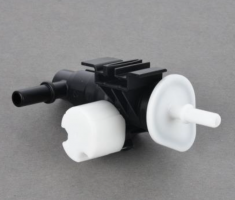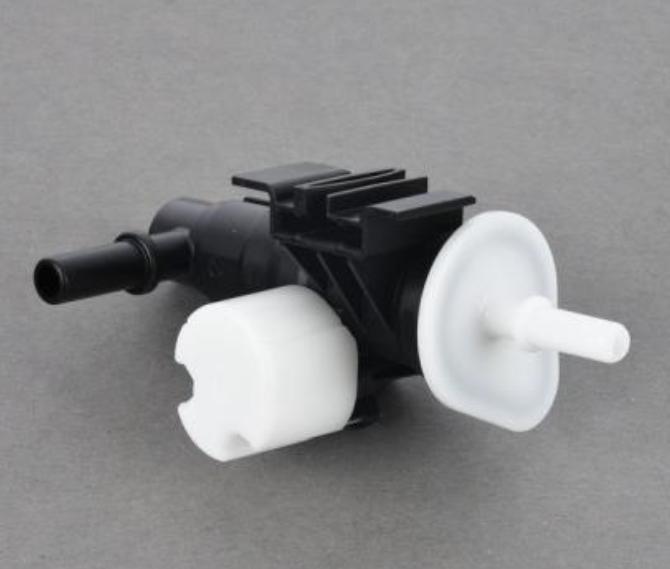
— A class action lawsuit against Volkswagen related to the suction jet pump was filed months after Audi and VW announced a recall to replace the suction jet pumps.
The lawsuit includes:
“Any person or entity that purchased or leased a Volkswagen Golf (2015-2020), Audi A3 (2015-2020), or Volkswagen Taos (2021-2024) (Class Vehicle) in the United States (including its territories and the District of Columbia).”
Apparently, Volkswagen was already aware of the problem with the suction jet pump in 2015 and VW recalled certain vehicles in 2016.
However, the National Highway Traffic Safety Administration launched an investigation to determine whether the problems were resolved by the ejector pump in the 2016 Volkswagen.
The federal investigation was launched in December 2023 after receiving more than 80 complaints and reports of Audi A3 and VW Golf vehicles leaking fuel and producing fuel odors. Customers also reported that the fuel pumps shut off while refueling and fuel spit back out of the tanks.
In February 2024, another VW suction jet pump recall was announced for these models:
-
Audi A3 (2015-2020)
-
2015-2019 Audi A3 Cabriolet
-
2019-2020 Volkswagen Jetta GLI
-
2018 Volkswagen Golf SportWagen
-
2015-2019 Volkswagen Golf SportWagen
-
2015-2020 Volkswagen Golf GTI
-
2015-2020 Volkswagen Golf
According to the February 2024 ejector pump recall documents, the pump in the fuel tank is designed to pump fuel out of the evaporative emissions (EVAP) system, but if a seal in the pump fails, gas can enter the evaporative emissions system.
This could cause fuel to build up in the EVAP system and leak through the canister filter element.
Documents submitted to the authorities in connection with the VW suction jet pump recall in February show that the car manufacturer believes that less than 1% of vehicles had the defect.
A fire could occur due to fuel leaks, but Volkswagen said no fires had been reported.
Volkswagen and Audi also announced that they would offer a reimbursement plan as part of the suction jet pump recall.
Before repairs and replacement parts could be manufactured, dealers had to be supplied with the replacement parts. Therefore, Audi and Volkswagen informed NHTSA that preliminary recall notices would be sent to vehicle owners no later than April 12, 2024.
Audi notified NHTSA that the notification date for owners of the ejector pump number 20YF for final repair will be July 25, 2024.
The owner notification date for Volkswagen’s ejector pump recall #20UF was scheduled for August 13, 2024.
The NHTSA completed its federal investigation in July related to the VW ejector pump recall in February.
Lawsuit over VW suction jet pump
According to Volkswagen’s class action lawsuit, problems with the ejector pump increase the risk of fire and impair the engine’s ability to take in fuel.
However, the plaintiffs seem to be unclear about the exact cause of the problem, claiming:
“(T)he discovery will show that (the defect) is likely the result of 1) inadequately designed, manufactured or installed seals in the ejector; 2) the use of inappropriate materials in the ejector that begin to degrade once the pump comes into contact with fuel; 3) improper design of the gasoline tank and/or ejector; and/or 4) improper design of the fuel system itself.”
The class action lawsuit alleges that Audi and VW customers complain that dealers refuse to repair vehicles while they are still under warranty. Plaintiffs also allege that dealers either refuse to repair the vehicles or are unable to repair them properly.
Although VW has initiated two suction pump recalls and a federal investigation has been initiated and concluded, the lawsuit alleges that Audi and Volkswagen “actively concealed and continue to conceal their knowledge of the suction pump defect.”
The plaintiffs also allege that automobile manufacturers “took affirmative steps to conceal failures and other malfunctions of the fuel tank, ejector pump and related components through technical service bulletins that were issued only to authorized repair shops and not distributed to owners or lessees.”
Volkswagen is also said to have told dealers to tell customers that the vehicles were functioning “normally” or “as intended” when this was not the case.
The class action lawsuit was filed by these vehicle owners:
-
Jagger Hardy / Florida / 2015 Volkswagen GTI SE
-
Nancy Pickett / Missouri / 2022 Volkswagen Taos
-
Geri Darrow / Florida / 2019 Volkswagen GTI
-
Luis Viteri / New Jersey / 2015 Volkswagen Golf
-
Andrew Montemayor / Hawaii / 2016 Audi A3
The Volkswagen ejector pump class action lawsuit was filed in the U.S. District Court for the District of New Jersey: Hardy et al. v. Volkswagen Group of America, Inc. et al.
The plaintiffs are represented by Berger Montague PC and Capstone Law APC.

